The conference aimed at providing an international academic forum for discussing and proposing solutions that Vietnam is experiencing in the context of global change. It was expected to promote a global network of scientists, experts, policy makers and entrepreneurs from various fields and different countries. The conference was meant to make contributions to the establishment of an international institution on Vietnamese studies in the future.
Present at the conference were Deputy Prime Minister Vu Duc Dam, Minister of Education and Training Phung Xuan Nha, Chairman of Vietnam Academy of Social Sciences Nguyen Quang Thuan, VNU’s President Nguyen Kim Son and more than 1,000 delegates from 36 countries and territories.
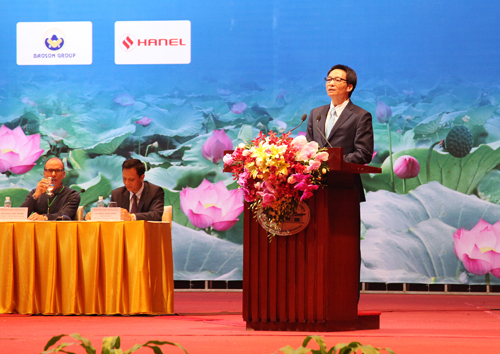
After the opening, the participants divided into foreign relations, international cooperation and integration; cultural resources; education and training and human resource development; technology and knowledge transfer; economy and livelihoods; and climate change sessions.

The economy and livelihoods session received 270 abstracts, 220 full-text articles on economics, business and livelihoods. At the conference, 22 papers were selected to present in the general plenary and separated sessions.
Prof. Hausmann from Harvard University (USA), Prof. Tran Van Tho - Waseda University (Japan), Prof. Vu Minh Khuong - National University of Singapore (Singapore), Prof. Kennichi Ohno - National Graduate Institute for Policy Studies (GRIPS - Japan) were among the keynote speakers at the economy and livelihood sessions. Prof. Hausmann presented a study on the level of economic complexity Vietnam in comparison within and between countries based on his regularly used concept of economic complexity. Prof. Vu Minh Khuong discussed the productivity problem in efforts to promote the economic growth of Vietnam. In his opinion, productivity analysis was the main factor that causes the growth rate of Vietnam to slow down. Prof. Ohno presented the study on the quality of industrial policy and middle-income trap of Vietnam in comparison with other countries. The study highlighted policy as the key determinant of the long-term economic fate of any nation and recommended that improving industrial policy requires a reform of policy methodology and invigoration of private dynamism with proper stimuli.
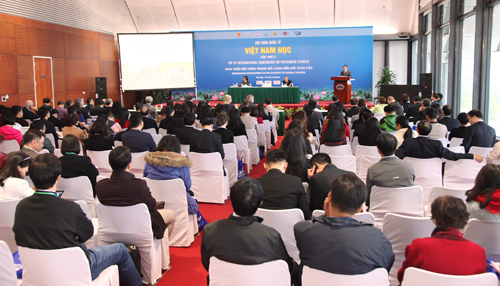
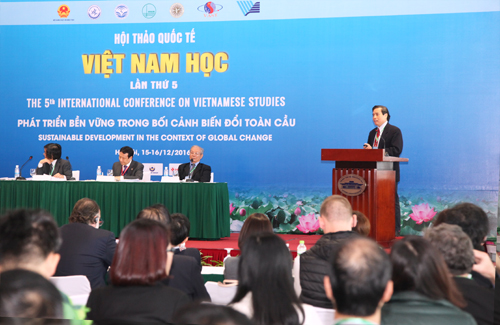
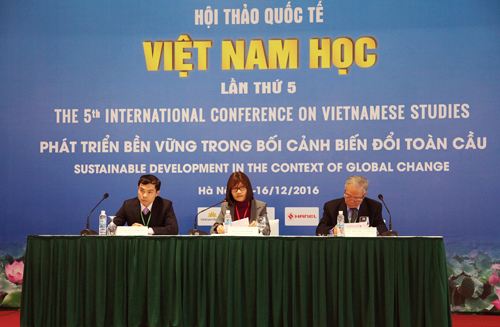
Many social and economic problems that population groups such as ethnic minorities, single women, and the disadvantaged are experiencing were analyzed from the perspectives of labor, migration, job movement… New economic models were applied to propose increasingly sustainable livelihood solutions for those people by the researchers.
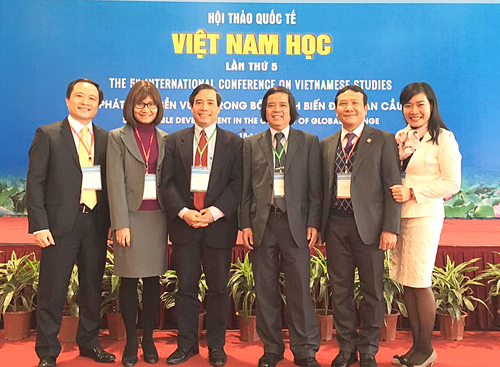
VNU-UEB leaders take a photograph with the participants
The conference ended with a plenary session on December 16th afternoon. Prof. Tran Van Tho from the economy and livelihood session took this chance to discuss the industrialization issues of Vietnam in the new period. In his opinion, Vietnam should boost industrialization either in width and depth so as to avoid premature de-industrialization, strengthen internal forces, nurture national capitalists, and select FDI that promote high technology projects, environment friendly, and domestic enterprises are not yet capable. He said external forces nowadays are diverse but the internal power is decisive for effective industrialization process.

 Print page
Print page Back page
Back page